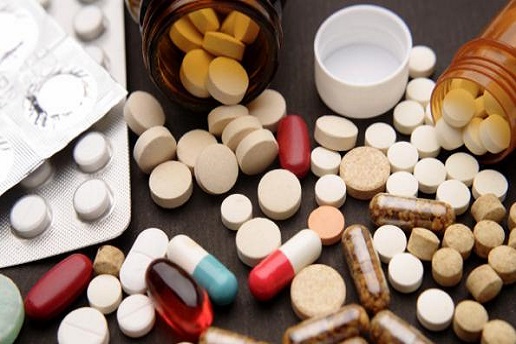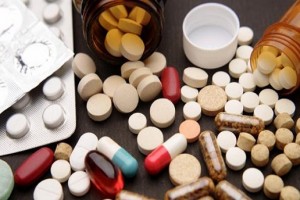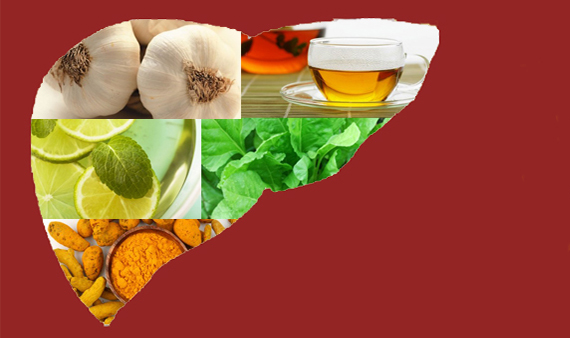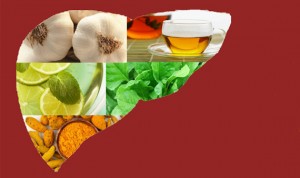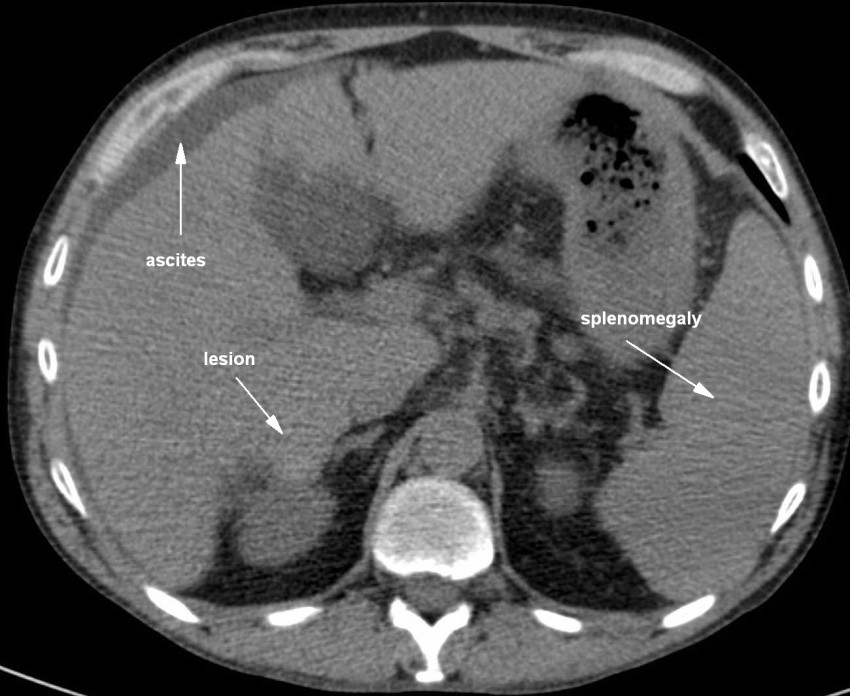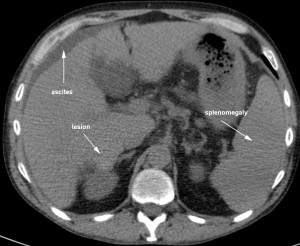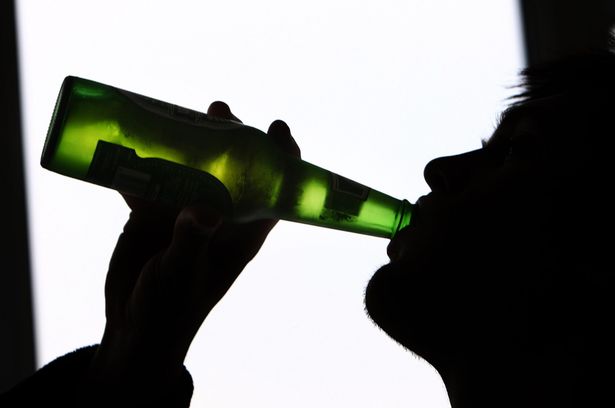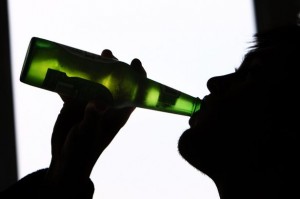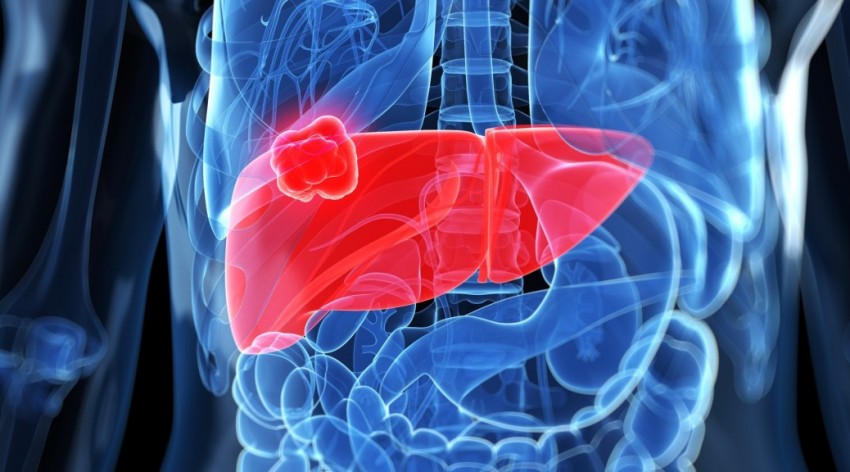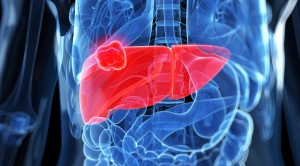Liver Conditions 15
VITAMINS FOR A HEALTHY LIVER
Our Human body requires various types of vitamins on a daily basis to keep functioning at its best. The Liver, in specific, needs almost all these vitamins to remain healthy and to carry out its everyday routine functions. There are also some precautions to be taken while choosing these vitamin supplements, as they do more harm than help. Let us discuss about each of these Vitamins and the vital role they play in the wellness of the liver.
Vitamin A
Vitamin A is a very good antioxidant. An antioxidant is very important for the body because it prevents free radicals (that are generated from normal metabolic processes, sun light, etc.,) from damaging the organs. Antioxidants are a boon that binds with these free radicals, neutralize them, thus preventing damage to the organs.
In the case of liver, free radicals in the body cause liver scarring. Hence, an antioxidant is required to prevent the free radicals from scarring the liver. Vitamin A does the job.
Vitamin A (Beta Carotene) also detoxifies the liver.
But caution needs to be taken while consuming Vitamin A. People who already have liver cirrhosis should be more cautious about the dosage of Vitamin A. But Vitamin A can be taken in the form of Beta Carotene.
Vitamin A is found in carrots, sweet potatoes, apricots, fish, liver and tropical fruits.
Vitamin B
Vitamin B-12 is a non toxic vitamin and has no contraindications or negative effects. It helps in the detoxification process. Vitamin B-12 is also used to treat Jaundice and viral Hepatitis. But Vitamin B-12 is more effective in the form of injection rather than oral supplement as it is not well absorbed due to gut flora.
Vitamin C
Vitamin C is also a very good anti oxidant that prevents the free radicals from destroying the healthy liver tissues. In fact, Vitamin C protects the liver. Even very low doses of Vitamin C help to prevent fat from building up in the liver. Normal dose of Vitamin C helps to flush the fats from the liver. It has also been studied that high doses of Vitamin C helps in eliminating Jaundice. But the doses are determined by a doctor depending on the Bowel tolerance.
Vitamin C is also recommended for people with problems related to toxicity and oxidative stress (due to free radical).
Vitamin C is found in citrus fruits like oranges and berries.
Vitamin D
Though Vitamin D is not directly used to treat Liver problems, it has been found that more than 90% of the people with Liver disease have Vitamin D deficiency. Hence, Vitamin D is prescribed for those with advanced liver disease to prevent osteoporosis and other bone related problems.
Vitamin E
Vitamin E is also an antioxidant used to neutralize free radicals. Vitamin E also protects cell membranes, softens the existing scar tissue of liver, which in turn helps in the regeneration of fresh tissues. Another job of Vitamin E is to protect Vitamin A from damage by free radicals.
But care should be taken on the dosage of Vitamin E. Also, usage is natural Vitamin E Is essential.
Vitamin E is naturally found in Pumpkin, Sunflower oil, Sesame Oil, Mangoes, Papaya, tomatoes.
Vitamin K
People with chronic liver conditions are more prone to bruising and bleeding as the liver cells are unable to produce enough of clotting factors. Vitamin K is prescribed for such kind of problems as it helps to reduce the deficiency of clotting factors and helps in reducing bruises and bleeding.
Vitamin K is found in dark green leafy vegetables such as spinach, mint, wheatgrass and alfalfa sprouts.
Choosing the right Vitamin and the correct dosage is very important for keeping the liver healthy and managing the liver problems.
Liked this article on Vitamins For A Healthy Liver and have something to say? Comment below and don’t forget to SHARE THIS ARTICLE!
DIET FOR A HEALTHY LIVER
Our Modern Lifestyle, complete with air pollution, food additives, and high amount of stress ensure that the liver has plenty to do. A mere three pounds liver works hard for you everyday than you could imagine, such as converting the food rich in carbohydrates, fats and proteins into energy, detoxify blood as so on and thus in other words known as a “Gatekeeper” of your body.
Being the second largest organ in the body, it is least cared for till something really goes wrong. It performs N number of functions in the body; you may not be aware of and keeps you away from many nasty health diseases.
Strengthening our liver is one of the ways to boost energy, balance weight and for overall strengthen health.
One of the best we can do is by having a health plan based diet as it is rich in antioxidants, natural cleansing agents like fiber and water and contains non – acidic proteins that are friendlier to our body than the animal sources. Here are few healthy foods recommended for a healthy liver.
- WALNUTS – It is high in glutathione and omega 3 fatty acids, which helps support our lives through the cleansing process.
- TURMERIC – It is used majorly as a spice but it is known to help our bodies digest fats and stimulate the production of bile. It can also act as a natural detox for the liver.
- LEMONS – All citrus fruits like lemons are full of Vitamin C, but lemons also help our body cleanse out toxic materials and aids digestion process.
- AVOCADOS – Adding more avocados in your diet, helps your body to produce a type of antioxidants called glutathione, which is needed for our liver to filter out harmful materials.
- GREEN TEA – This tea contains a lot of plant antioxidants known as catechins, which is known to improve the functions of the liver.
- LEAFY GREENS – Leafy greens like spinach and lettuce have the ability to neutralize metals, chemicals and pesticides that maybe in our food, and act as a protective mechanism for the liver.
- BEETS – It is high in plant flavonoids, which will improve the overall function of the liver.
- GRAPEFRUIT -Either eating or drinking grapefruit juice helps flush out toxins and carcinogens. It is also high in Vitamin C and antioxidants.
- GARLIC- It helps to activate enzymes that can flush out toxins from liver. It has a high amount of allicin and selenium, two natural compounds heeds in liver cleansing.
- APPLES – They are rich in pectin, which is a soluble fiber which helps to remove toxins and cholesterol from the blood, which helps the liver. They are also rich in malic acid a natural cleansing nutrients which removes toxins.
- LENTILS They are rich in fiber which assists in cleansing process and are a natural source of plant based protein. Too much protein is not good for liver but lentil provides the right amount of protein for the body, which is not harmful and is the easiest legume to digest.
Liked this article on Diet For A Healthy Liver and have something to say? Comment below and don’t forget to SHARE THIS ARTICLE!
CIRRHOSIS OF THE LIVER
The liver which is the largest of the internal organs, plays a major role by producing the proteins required for the body, clotting of the blood, storing the nutrients and sending nutrients to the bloodstream, producing bile which is required for digesting food, storing the sugar, and eliminating harmful substances from the blood. In this process, the liver comes in contact with various harmful substances which scar the liver.
Cirrhosis
Cirrhosis is the final stage of any type of liver damage and happens over a long period of time. The liver tissue is damaged and becomes scarred. The scar tissue cannot perform its functions thereby restricting the flow of blood and reduce the production of proteins, glucose and cholesterol.
Mostly, Cirrhosis is the result of Hepatitis C, alcohol and fatty liver. Once Cirrhosis occurs, it cannot be reversed and more and more tissues get scarred eventually leading to liver failure. Other complications are kidney failure, liver cancer, insulin resistance, diabetes, gallstones, esophageal varices (the bile which cannot pass through the liver is backed up to the esophagus), edema and enlarged spleen.
Though it is fatal, further damage to the liver tissues can be avoided if detected early.
Cause of Cirrhosis
The liver can repair its damaged tissues but with long term exposure of harmful substances like Hepatitis virus and alcohol, Cirrhosis happens. It shrinks and hardens the liver tissue restricting the normal liver function.
Cirrhosis Due to Alcohol
Cirrhosis by alcohol happens when a woman takes more than 2 drinks a day and when a man takes more than three per day for more than 10 years. It however is different for each and every individual.
Cirrhosis Due to Fatty Liver
Cirrhosis due to fatty liver is due to the buildup of fat in the liver. The fat buildup can be in people who may be obese, diabetes, high BP, repeated heart problems and metabolic syndrome which is associated with the size of the person.
Cirrhosis Due to Genes
Cirrhosis can also be genetic, where the person is affected with any of the diseases such as the Wilson’s disease, galactosemia, hemochromatosis, Alpha- 1 antitrysin deficiency and other glycogen storage issues.
Symptoms of Cirrhosis
The symptoms of Cirrhosis are jaundice, loss of appetite, weight loss, weakness, itchiness, nose bleeding, mental confusion, swelling of the abdomen, swelling of the legs, impotence and gynecomastia where breast development occurs in men.
The doctor looks for signs and symptoms and orders for appropriate tests. The tests which can detect Cirrhosis are family history, blood count test, albumin test (shows the rate at which the blood clots), liver function tests, liver biopsy, MRI of the abdomen area, Scan of the liver, CT of the abdomen and alpha fetoprotein which detects the presence of liver cancer.
Cirrhosis when detected can be treated based on its progress. Treatments are based on the extent of liver damage. Surgery is suggested to eliminate the damaged liver tissue and saving the rest of healthy tissues. Liver transplantation is done when there is liver failure due to Cirrhosis. Doctors prescribe a low protein and high carbohydrate diet. Reduced salt intake and stopping alcohol consumption is advised. Cirrhosis can be prevented or slowed by following a healthy lifestyle and stopping alcohol consumption.
Liked this article on Cirrhosis Of The Liver and have something to say? Comment below and don’t forget to SHARE THIS ARTICLE!
ALCOHOL RELATED LIVER PROBLEMS
In olden days drinking was attributed to a masculine habit. Today drinking has become a social phenomenon and is one of the aspects of gender neutrality. Although social drinking is widely accepted, it is always important to know not to cross the line.
The saying –too much of anything is good for nothing, holds good for all aspects in life. For instance even water which is considered the best liquid that humans can consume should be had in moderation otherwise it may lead to water intoxication.
Considering that a harmless liquid otherwise called the elixir of life, water, needs to be consumed in moderation, then what about alcohol?
The side effects of globalization leading to bigger jobs, smaller families and greater luxuries has also led to several other not so great vulnerabilities. The only way to control it is to know what will happen when you consume too much alcohol.
Liver being one of the largest organs in the body is the worst affected among others due to alcoholism. The following are the problems you most likely would face due to over drinking.
Fatty Liver
One of the functions of liver is to convert glucose into fat and store it in various parts of our body for later use. In case of alcoholism, the liver is ruined in such a way that it stores the converted fat into itself. As a result the liver enlarges with more and more storage of fat and one may end up feeling heavy in the abdomen region.
Signs of fatty liver are when you start feeling full with very less food and when you start losing your appetite. Although these are signs of just some eating or digestion problems, if the situation is overlooked then it may lead to liver disease for this is the first step towards the same.
Alcoholic Hepatitis
Resilience is a common factor of the human body but having said that there is a limit for drinking beyond which liver cells begin to get damaged. Every time the liver pumps out the toxins in the blood due to alcohol, some of the liver cells die in the process. Excessive drinking may lead to a medical condition called alcoholic hepatitis.
This is a serious condition which develops due to over drinking over a short period of time. When this disease is mild, the liver damage can be reversed if one stops drinking for good. However if the damage is high then the condition may become worse and may become life threatening.
Cirrhosis
This is almost the final stage of liver disease where the maximum damage to the liver is done. However, even at this stage, if one stops drinking permanently or stick to daily limits, their life expectancy may increase. If not there is no guarantee that one may live even for the next five years. The problem here is with identifying this disease because symptoms may not be visible.
Liked this article on Alcohol Related Liver Problems and have something to say? Comment below and don’t forget to SHARE THIS ARTICLE!
5 THINGS THAT MAY DAMAGE YOUR LIVER
You probably are not aware of the huge number of functions your liver does to maintain your overall health. In fact liver is the most important organ in your body and plays a definitive role from digestion to accumulation, generation of blood to secretion of hormones and even in your general immune system.
Almost 500 functions are performed by this football sized organ and hence should be treated rightly to keep you staying healthy throughout your life.
There are some things that you need to keep your liver healthy such as following the right kind of food habits, a good fitness regime, drinking lots and lots of water and having a good night’s sleep.
Well, there are some other things which you should not do, because these deeds of yours would damage your liver. Some such activities which you must avoid are discussed here.
- Fatty Food
10% of the overall fat that is present in your body goes directly to your liver and gets accumulated there. So for every 100 gm increase in fat your liver gets 10gm fat. The total weight of your liver is 1.36 kg; even an increase in 10 grams would mean a 10% increase t its normal weight.
Now imagine if the accumulated fat was the bad cholesterol or the saturated fat, the amount of harm it would cause to your liver and therefore your body would increase many fold almost instantly.
Thus fatty food consumption has to be minimized, concentrate on avoiding processed and preserved food such as pizzas and burgers.
- Processed Food
The main function of liver is cleansing your system; this implies that all the toxins, impurities and the non digestible waste would go to the liver for further filtration.
Preservatives, as the name suggest preserve food substances from the attack of microorganisms. Thsese microorganisms though cause harm to our body, still are living things. So basically the preservatives act against the functions of a loving thing to inhibit it from growing on a food substance. It is thus, a proven toxic product acting against the growth of a living being.
When these toxins reach the liver they cause irreparable harm to the liver and sometimes lead to serious liver conditions.
- Alcohol
Too much of alcohol consumption is considered to affect the functioning of liver directly. This is because when liver processes fats it converts them to sugars and sends it to through the blood to be used as energy. Alcohol hinders this conversion of fat to sugar.
Thus, fat remains as fat in liver rather than being converted to sugar. This leads liver conditions such as fatty liver, alcoholic hepatitis and even cirrhosis.
- Drug Overuse
Medications, especially over the counter medications have to be taken only under unavoidable circumstances. The drugs such as painkillers and even vitamin additives do not get metabolized completely in the digestive system.
Some chemicals in them remain circulating further and reach the liver. Here they hinder the normal functions of liver and cause damage to it.
- Artificial Sweeteners
Using glucose is good for your health because it gives energy to perform your normal activities. However artificial sweeteners which are cheaper than sugar and give instant sweetness to juices and food do not give glucose.
They are made of sucrose or fructose. These sweeteners cannot be easily metabolized and hence leave behind toxic impurities that are carried away to the liver. In the liver they affect the bile production and also other hormonal production processes harming liver and its functions.
Some of the above activities seem to be a normal thing you do in your day to day life, and may not have looked so harmful too. However in the long run you would end up with liver conditions if they are not checked.
Liked this article on 5 Things That May Damage Your Liver and have something to say? Comment below and don’t forget to SHARE THIS ARTICLE!
